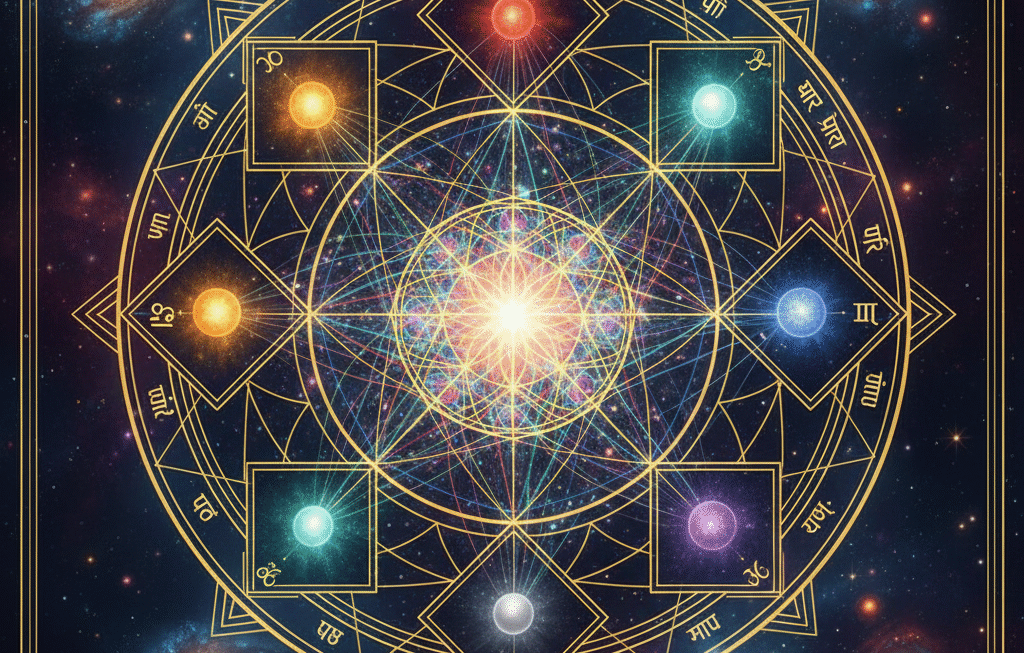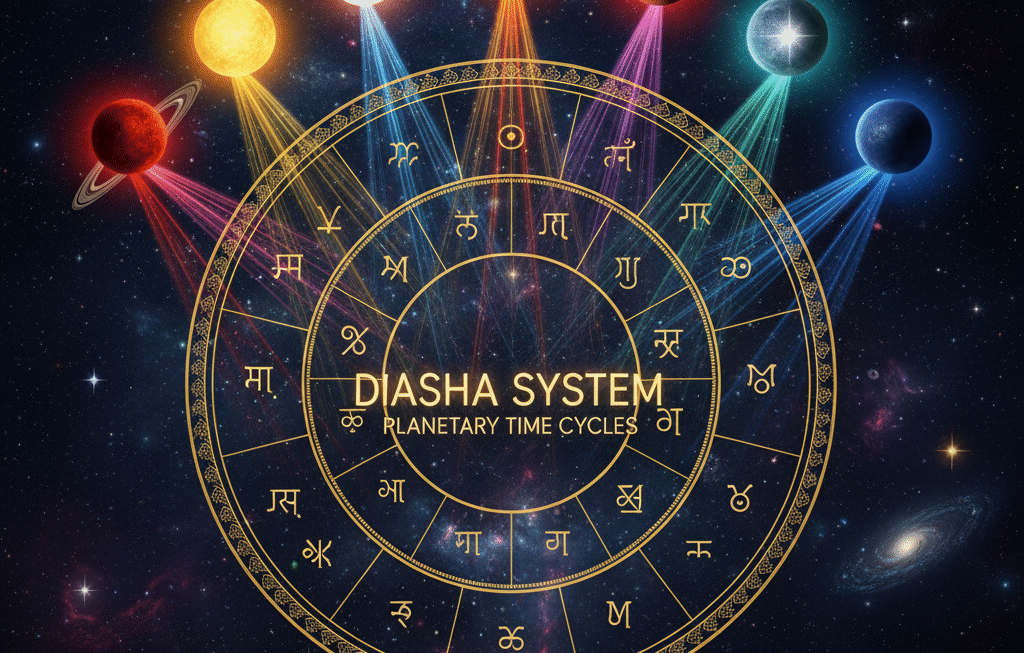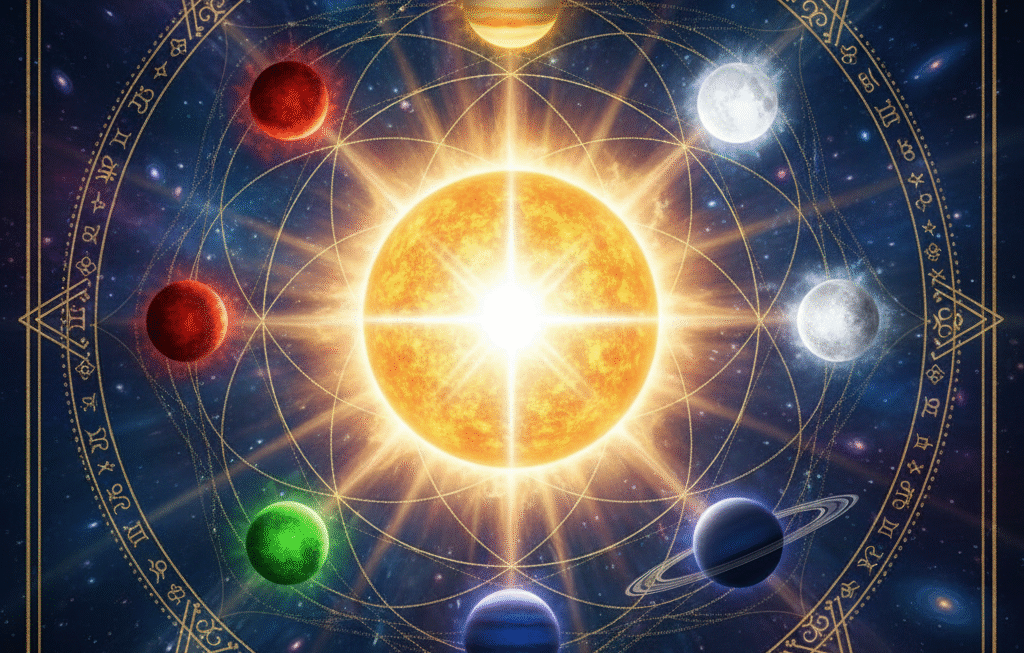Have you looked at your Kundli, identified your planetary positions, and noticed several major houses containing no planets at all? For those new to Jyotish, seeing these empty houses astrology can spark concern. You might worry that a house with no planets in house means that area of your life is dormant, missing, or destined for failure.
As a senior content writer, I am here to tell you: empty houses in Vedic astrology do not signify an empty life. They simply point to a different, often more straightforward, way that area of life is managed. This guide demystifies the meaning of vacant houses and shows you where to focus your analysis when a house is seemingly blank.
1. The Reality of Vacant Houses Meaning
It is entirely normal to have five, six, or even more houses without planetary occupants. Since there are 12 houses but only 9 planets (the Sun, Moon, Mars, Mercury, Jupiter, Venus, Saturn, Rahu, and Ketu), it is mathematically impossible for every house to have a planet.
- Opinion: A vacant house is not a weak house; it is simply a house managed by different cosmic forces.
- Reason: Life still happens in every house, whether a planet is sitting there or not. The lack of a planet just means that the affairs of that house are not primarily defined by the intense, direct karma that a planet carries.
- Example: If your 7th House (Partnerships) is empty, it doesn’t mean you won’t get married. It just means the major challenges and dramas related to marriage won’t be as intensely driven by a single planet like Saturn (delay) or Mars (conflict).
- Opinion/Restatement: Your concern about empty houses vedic astrology can be put to rest; this is a natural state for any birth chart.

2. Who is Managing the Empty House? The Role of the House Lord
When a house is empty, your focus must immediately shift from the planets in the house to the planet ruling the house. This is the House Lord (Bhavesha), and it is the true manager of that life area.
OREO: The Managerial Model
- Opinion: The House Lord is the key factor that determines the fate of an empty house.
- Reason: Every house has a zodiac sign in it. Every zodiac sign has a ruling planet (Lord). This Lord manages the affairs of that house from wherever it is placed in the chart. Its condition and placement tell you about the success and quality of the empty house.
- Example:
- Vacant House: Your 5th House (Creativity, Children) is empty.
- House Lord: The sign in the 5th House is Gemini (ruled by Mercury).
- Find the Lord’s Placement: You locate Mercury in your 1st House (Self/Personality).
- Interpretation: The affairs of your 5th House (Children, Creativity) are being managed by Mercury (Intellect, Communication) from the 1st House (Self). This suggests your creativity and approach to children will be strongly tied to your intellect and identity, manifesting as a communicative, intellectual, and perhaps analytical (Mercury) personality (1st House).
- Opinion/Restatement: Always find the House Lord and analyze its sign and house placement before drawing any conclusions about a vacant houses meaning.
3. Secondary Influences: Aspects and Divisional Charts
Even with no planets in house, two powerful cosmic influences ensure that house is still fully active and influenced.
A. Planetary Aspects (Drishti)
Planets do not just influence the house they sit in; they also cast their energy (aspects) onto other houses in the chart.
- Focus: Check for the aspects of Jupiter, Saturn, and Mars, as they cast unique, powerful aspects (e.g., Saturn aspects the 3rd and 10th houses from itself, plus the 7th house).
- Impact: If an exalted Jupiter is aspecting your empty 7th House (Partnerships), Jupiter’s blessing (wisdom, fortune) will flow into that area, even if the house is otherwise empty.
B. Divisional Charts (Vargas)
The true nature of an empty house is often revealed in the divisional charts, particularly the Navamsa (D-9) Chart.
- The Navamsa Test: The Navamsa is the divisional chart for marriage, fortune, and the inner potential of the Rasi (D-1) Chart.
- The Revelation: A house empty in your main birth chart (D-1) may have one or more planets placed in the corresponding house of your Navamsa. These planets reveal the underlying potential and long-term results for that life area.
4. Summary: The Meaning of an Empty House
To summarize your approach to the vacant houses meaning, here is the hierarchy of analysis:
| Rank | Factor to Check | Why it Matters |
| 1st | The House Lord | The ultimate manager and indicator of the house’s fate. |
| 2nd | Planetary Aspects | Direct incoming energy (blessings or challenges) from other planets. |
| 3rd | The Sign Itself | The inherent nature (fiery, earthy, watery, airy) of the sign in the house. |
| 4th | Divisional Charts (D-9) | The underlying potential and true strength of that life area. |
An empty house simply means that life area is not characterized by the intense focus of a planet sitting there. Instead, the results of that house will primarily follow the condition, strength, and placement of its House Lord. You now have the tools to fully interpret your empty houses astrology without fear.
Conclusion: The Blueprint of Strength
You have reached a critical juncture in your study of Jyotish. Locating the planets is simple, but understanding their combined effect based on sign vs house placement is the true art of chart interpretation.
By applying the synthesis model—Planet (Action) + Sign (Filter) + House (Life Area)—you are now equipped to see the deeper, karmic reasons behind your life experiences. You understand that a planet’s strength is not just about the house it occupies, but the nature of the sign it resides in.
Continue to examine the three components together, and the complex web of planetary positions will reveal itself as a logical, beautifully designed map of your soul’s journey.












